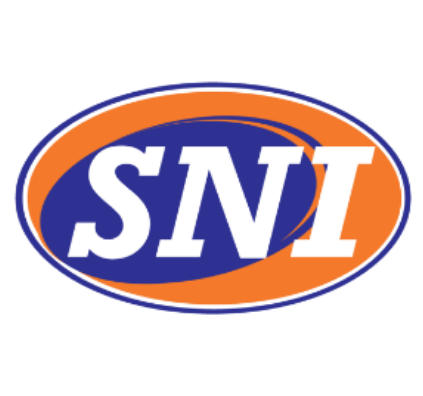Content
- Where will I see this deduction on my tax return?
- Proposed Rule Would Amend Section 1557 Sex Discrimination Regulations
- Qualified Business Income Deduction
- How to calculate the QBI deduction
- Inflation Reduction Act of 2022: Prevailing wage and apprenticeship requirements
- Step 2: Is your business a specified service trade or business?

Unfortunately, that’s where the clarity seems to end. Because, as with many IRS concepts, the QBI deduction can be hard to wrap your head around. There are a number of stipulations on who can actually claim the deduction and how to go about doing it. Offering a potential 20% tax deduction, it’s clearly a pretty big deal for anyone who has to handle self-employment taxes. HR&P’s web based solutions make it easy for us to manage our employee’s needs. They also help us stay compliant with the Affordable Care Act and with “the alphabet soup” of constantly changing Governmental regulations.
- The deduction can be up to 20% of QBI, subject to restrictions that can apply at higher income levels and a separate restriction based on taxable income.
- If your business is not an SSTB, and your total taxable income is between $170,050 and $220,050 ($340,100 and $440,100 if married filing jointly), you can claim the full 20 percent deduction.
- If your business is an SSTB and your total taxable income is between $170,050 and $220,050 ($340,100 and $440,100 if married filing jointly), then continue to the next step to calculate your limited deduction.
- Type of trade or business –Certain service businesses can face steep phaseouts if 2020 taxable income before the QBI deduction exceeds $163,300 or $326,600 .
- At certain levels, you stop being eligible for the deduction altogether.
In general, total taxable income in 2022 must be under $170,050 for single filers or $340,100 for joint filers to qualify. To the extent provided in regulations, any payment described in Sec. 707 to a partner for services rendered with respect to the trade or business. Capital gain of the business and thus should not be excluded from qualified business income.
Where will I see this deduction on my tax return?
But because taking that deduction lowers their business income, it also lowers the amount of their QBI write-off. After all, 20% of $40,000 is less than 20% of $50,000. This may influence which products we review and write about , but it in no way affects our recommendations or advice, which are grounded in thousands of hours of research. Our partners cannot pay us to guarantee favorable reviews of their products or services. We believe everyone should be able to make financial decisions with confidence. This article discusses the history of the deduction of business meal expenses and the new rules under the TCJA and the regulations and provides a framework for documenting and substantiating the deduction.
For the new pass-through deduction rules, you would want the 50% of wages limitation to be higher. The specified service businesses can be in health, law, accounting, consulting, brokerage services, financial services, and others, but exclude architects and engineers. The qualified business income deduction is also known as the Section 199A deduction because the rule comes from Section 199A of the Internal Revenue Code. The QBID is also known as the pass-through deduction, QBI deduction, and the 20% deduction. Terms and conditions apply; seeAccurate Calculations Guaranteefor details.
Proposed Rule Would Amend Section 1557 Sex Discrimination Regulations
NoPartialYesQBI $75,000$11,250$0Amount of W-2 Wages$20,000$20,000$20,000Subject to the wage limit? NoPartialNoAllowable business deduction$15,000$1,612.50$0The Form 1040 Instructions and IRS Publication 535 contain worksheets you can use to calculate the deduction. Use the worksheet in the Form 1040 instructions if your taxable income before the QBI deduction isn’t more than $170,050 ($340,100 if married filing jointly). Use the Publication 535 worksheet if your taxable income before the QBI deduction is higher than the threshold amount. Business owners aren’t the only people who can benefit from the QBI deduction.
For now, though, just know that a business’s “qualified business income” is just the amount of taxable income it earned. If you’re over that limit, complicated qualified business income deduction IRS rules determine whether your business income qualifies for a full or partial deduction. Here’s how the qualified business income deduction generally works.
Qualified Business Income Deduction
Because of this, business owners are faced with a decision between short-term and long-term savings. If you forego your retirement savings in favor of more QBI, you’ll reduce the amount of tax you owe the IRS right now. But the trade off is, you’ll miss out on the long-term benefits of 401 contributions. Also known as Section 199A, the QBI deduction was added to the US Tax Code by the Tax Cuts and Jobs Act . It’s been available to eligible freelancers, independent contractors, and business owners since January 1, 2018. If not all of that made sense, don’t worry — we’ll get into what “pass-through income” means in a bit.

In the meantime, you can review the basic rules and strategies and see how they may apply to you, and what questions you may want to explore further. Whether the rule meets the goal remains to be seen. Any strategies you consider should be given a good dose of caution, because there is still a lack of clarity and guidance into the definitions and how these deduction rules are to be applied. US Mastercard Zero Liability does not apply to commercial accounts . Conditions and exceptions apply – see your Cardholder Agreement for details about reporting lost or stolen cards and liability for unauthorized transactions. When you use an ATM, in addition to the fee charged by the bank, you may be charged an additional fee by the ATM operator.
How to calculate the QBI deduction
First, the total QBI for the business is calculated on one of the two forms above. Then, each owner’s share of the QBI is calculated and entered in a separate line on the owner’s Schedule K-1, along with other income of the owner. The information on Schedule K-1 is entered with the owner’s other income on the owner’s personal tax return. Some types of businesses, called specified services trades or businesses , may not be eligible for the entire QBI deduction if the incomes of the owners are above certain limits, which change every year. These SSTBs include businesses involving the performance of services based on the reputation or skill of employees or owners . A specified service trade or business generally includes any service-based business where the business depends on the reputation or skill of its owners or employees.
What is the qualified business income deduction for f8995?
Qualified business income deduction
The pass-through deduction lets partners or shareholders in a pass-through business deduct up to 20% of their share of qualified business income from their income. To claim this valuable tax break, you may need to file Form 8995-A.
Also, it is unknown if the loss can be used to offset income from all of a taxpayer’s businesses, or only the income of the business that generated the loss. At this time it is projected additional IRS guidance may be given around the end of July 2018. A specified service trade or business is a service-based business where the business depends on the reputation or skill of its employees or owners. That’s a broad definition, but it includes law firms, medical practices, consulting firms, professional athletes, accountants, financial services, members of the performing arts, investment management firms, and more. The QBI deduction is only available to owners of pass-through businesses, even if you’ve opted to take the standard deduction as opposed to an itemized deduction.


